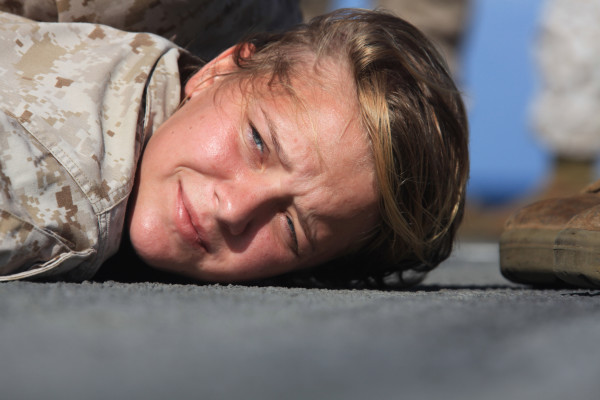

Today, 10% of the veterans population comprises women; we have been around since the American Revolution. So, why does the notion of “women veterans” seem foreign to most people? Why are women veterans treated differently?
When you hear the word “veteran,” what image comes to mind? Most people would say that a veteran is an older man wearing a military hat of sorts. Unfortunately, the stereotype of a veteran has hindered women from receiving the same consideration or treatment as their male counterparts.
We all know about organizations for veterans such as Veterans of Foreign Wars or the American Legion, but what about women veterans organizations? Personally, I had never heard of one until I did the research for this article. And they do exist! There are the National Women Veterans Association of America, Women Veterans for Social Justice, Women Veterans Rock and National Alliance of Women Veterans, to name a few. How come I was never informed of them? I have been a veteran for a decade now, but these were news to me.
Maybe I have never heard of these organizations because the only time I get recognized as a woman veteran is when I check in for an appointment at a women’s clinic in the Veteran Affairs health care system. As a disabled woman veteran, I have to see various specialists in the VA system. And I am not alone: In 2008, there were 453,250 women veterans enrolled in the VA system. That number has most likely increased in the last few years. But even so, women veterans continue to be treated differently than male veterans.
Let me share my experience: Since I left the service, I have enrolled in five different VA health care systems. All of these have been in different parts of the country, but I encounter the same issue: The staff assume that I am not a veteran. I usually go to my appointments with my husband. Every time we arrive at an appointment (except at the women’s clinic), people assume that he is the patient. People thank him for his service when we walk the halls of a VA clinic even though he never even served in the military. Furthermore, most receptionists speak to him when we approach a check-in window. When I hand them my ID card, they are surprised that I am the veteran.
This problem is not limited to greetings: At a VA hospital in Connecticut, I had two male veterans cut in line in front of me because they, and the attending receptionist, assumed that I was just waiting for my spouse, or my father. At the same hospital, a doctor at the dental clinic asked her receptionist to verify my “entitlement to benefit” because I didn’t “seem like I was a disabled veteran.” At the emergency room of the VA Hospital in Puerto Rico, I was waiting in a room for a shot. When the nurse came into the room, he asked my husband to drop his pants to receive the shot. I had to quickly correct the nurse. Honestly, I get tired of correcting people.
Furthermore, I have been denied some basic gynecological needs at my local outpatient clinic. Six months ago, I had my yearly check-up done at the Perry, Georgia, clinic. My primary physician did not schedule a pap smear, as is required, because I was “young enough.” At that time, it had been 18 months since my last one and ovarian and uterine cancer runs in my family. I guess my doctor forgot to check my records. Or maybe she thought that a young veteran should just wait. Recently, I requested a change of primary care provider because I know I should not be neglected. Now, I will have to drive an hour to see my new PCP.
I am not alone. According to the Associated Press, many female veterans are not receiving the necessary health care from the VA system. Many of these women have to go outside of the system, drive long distances to get care from a well-staffed VA clinic, or are simply left to wait. In fact, “female veterans have been placed on the VA’s Electronic Wait List at a higher rate than male veterans.”
I wonder, why are female veterans left behind? Male veterans: I ask you, did you not serve alongside women? Employees at the VA health centers: have you never heard of women serving in the military? Why do most people assume that only men can be veterans in this day and age? I ask you, reader, to remember that women have served their country, too.
Myrna M. Segui served in U.S. Air Force as a security forces member from 2001 to 2004. She received her bachelor’s degree from the University of Central Florida in 2006 and currently resides in Warner Robins, Georgia.